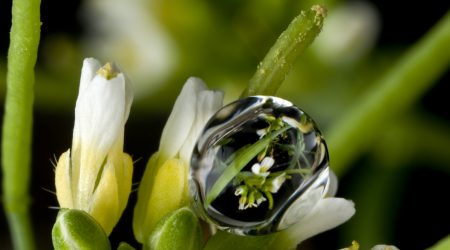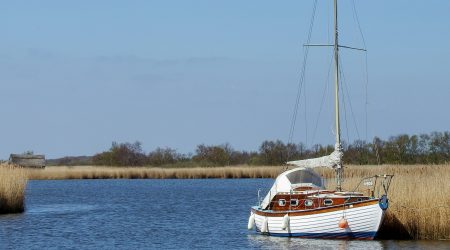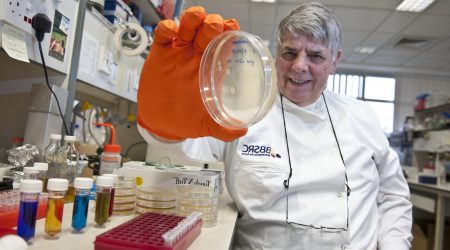We caught up with Dr Belinda Clarke, Director of Agri-Tech East, who did her PhD at the John Innes Centre and continues to work closely with the Norwich Research Park organisations
How did you get into your area of research?
I did my PhD with Professor Alison Smith at the John Innes Centre, researching starch production in peas and potatoes. Starches have many important uses: in paints, thickeners, lubricants and the food industry including the sugar coating on jelly babies.
Before that, I worked with Professor Anne Osbourn in The Sainsbury Laboratory as a lab technician investigating avenacin, the compound that gives oats protection from the take-all fungus.
One morning, she said she had been reading about a tomato compound, tomatine, and that she had a hunch it would help her understand how oats create avenacin. She was right, and her epiphany has helped open up the field of plant natural product metabolism – the study of how plants make compounds with useful properties.
Seeing how exciting it was to make new discoveries inspired me to study for a degree.
What persuaded you away from the lab?
During my PhD I experienced a second turning point in my life.
The John Innes Centre created a stand for the Royal Norfolk Show and Alison’s lab technician and I spent a very happy time making an interactive display to show how plants make starch. We tooled up with bricks, spray paint, Velcro, pipe cleaners and all sorts of fun things.
I realised that I wanted my career to be about enabling science to have a wider impact, more than pushing the boundaries as a research scientist.
When I was finishing my PhD, many research organisations and universities were encouraging people into communication, but I struggled to see a long-term career path, and how it would make a direct impact.
I was far more interested in taking great science and putting it to use. I realised that I needed to operate at the interface of research, industry and government to ensure I could better understand the whole process and be directly involved.
What have you learnt from working with the industry sector?
I’m more convinced than ever of the need for collaboration – from discovery to industrial application.
Discovery research is critical for the UK to retain its world-leading knowledge base. At the same time, we must not underestimate the appetite with which industry is looking to academia for solutions.
Industry is made up of large and small businesses on whom careers, employment, pension funds and mortgages all depend. When science helps to reduce waste or to improve productivity and efficiency, our health, wealth and the environment all benefit.
The expectations of industry and academia can sometimes start out of sync, but when they come together the impact can be tremendous.
How do we encourage academia and industry to work together?
There are a lot of tools and incentives to help academia and industry work together, but it can still be tricky to get the relationships set up.
Very often people “don’t know who they don’t know” and expectations of outcomes, timescales and funding are not always aligned between the two groups.
Sometimes a boost of “activation energy” is needed, often provided by a third party, to help overcome some of the barriers. I have always been excited by trying to provide that energy. Helping all parties understand the needs and drivers and expectations of the others from the outset can really speed up the connections and establish common goals.
As Director of Agri-Tech East, what is your vision for the organisation?
Our vision is to be a globally recognised catalyst for open innovation in agri-tech. The “open” aspect is crucial: looking outside one’s existing or traditional network for solutions or partners, and thinking laterally around a challenge.
Our existing relationships with plant researchers, breeders, farmers and other members of the supply chain will still be critical, but we’re also interested in bringing the “non-traditional” players into the discussions, such as software engineers, materials scientists, imaging technologists and computer modellers – many experts in these disciplines are interested in working with crop biologists and growers to help develop new on-farm innovations.






